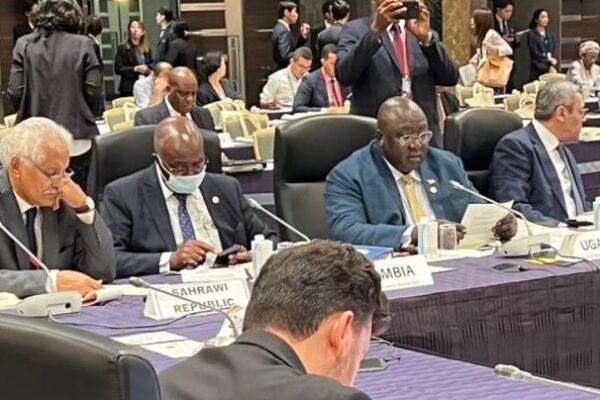EU Court ruling: Morocco has no sovereignty over Western Sahara and EU-Morocco Agreements involving the Territory are invalid

EU Court ruling: Morocco has no sovereignty over Western Sahara and EU-Morocco Agreements involving the Territory are invalid
In a landmark decision delivered this morning, the European Court of Justice (CJEU) has reaffirmed that Morocco has no sovereignty over Western Sahara and that the occupied territory cannot be included in any EU-Morocco trade or fisheries agreements. The ruling, read out by the President of the Court at 09:55 on 4 October, rejected all EU appeals and confirmed the conclusions of the Court’s first chamber.
The President of the EU Court of Justice, Koen Lenaerts, clarified that EU-Morocco trade and fisheries agreements that currently involve Western Sahara must cease within one year. The Court considers that the European Commission had breached the right of people in Western Sahara to self-determination by concluding trade deals with Morocco.
The Court’s decision marks the culmination of a series of legal battles challenging the inclusion of Western Sahara in agreements between the EU and Morocco. Western Sahara Resource Watch (WSRW) anticipates that the final documents of the ruling will be published within the hour.
This ruling comes in the wake of previous decisions dating back to 2016 and 2018, where the Court had already nullified the application of both the EU-Morocco trade and fisheries agreements to Western Sahara.
The Court has consistently held that Western Sahara is a “separate and distinct” territory over which Morocco has neither sovereignty nor an administering mandate.
According to international law, the people of Western Sahara have the right to self-determination, and any agreements affecting their territory must receive their explicit consent. The 2021 rulings also clarified that such consent must be obtained through the UN-recognized representative of the people of Western Sahara, the Polisario Front. A ruling confirmed by Today’s ruling.
Despite these earlier rulings, the EU institutions renegotiated agreements with Morocco to extend their geographical scope to Western Sahara without seeking the consent of the Saharawi people. Instead, the EU conducted consultations with Moroccan stakeholders, which many saw as an attempt to sideline Saharawi opposition. In response, Saharawi representatives, led by the Polisario Front, sought legal redress.
The case, which began in 2021, saw the EU Council and Commission appeal rulings made by the EU’s General Court in September 2021, which had upheld the rights of the Saharawi people. Today, the CJEU’s decision once again confirms that the people of Western Sahara are entitled to decide their own fate and cannot be subjected to agreements made between Morocco and the EU without their consent.
Over the past decade, there have been seven major rulings from the EU Courts on the matter:
2015: The General Court of the EU annulled the application of the EU-Morocco Trade Agreement in Western Sahara.
2016: The CJEU upheld that decision, ruling the agreement inapplicable to Western Sahara.
2018: The CJEU declared the EU-Morocco Fisheries Agreement non-applicable to Western Sahara.
2018: The General Court ruled the EU-Morocco Aviation Agreement invalid for the same reasons.
2021: The General Court once again upheld that both the amended Trade and Fisheries agreements could not legally apply to Western Sahara without the consent of its people.
As this complex legal saga reaches its conclusion, today’s ruling signals a major victory for the Saharawi people and their long-standing quest for self-determination. The EU will now have to adjust its future dealings with Morocco to comply with the court’s rulings and international law, respecting the sovereignty of the Saharawi people over their land.






